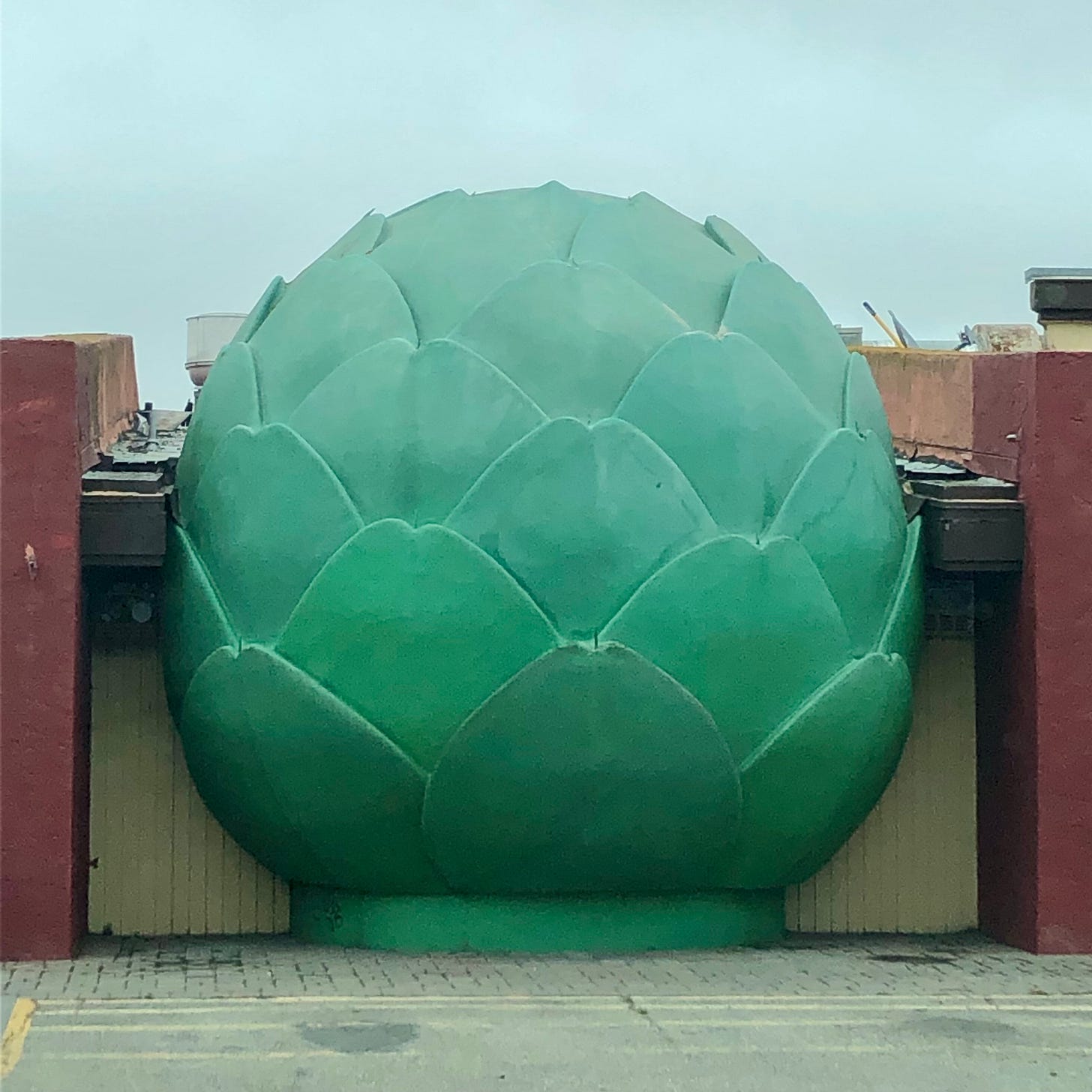The problem with solutions journalism
Most climate fix stories don't ask the tough but necessary questions
Three years ago, I flew out to San Francisco a day ahead of a conference and drove down to Salinas. The CEO and founder of a company who built harvest robots was supposed to pick me up from a hotel the next morning so we could go to the small plot of land his company was renting for a demonstration. But he never showed up. Didn’t call. Didn’t apologize. Didn’t even try to reschedule, not really.
Eventually I left and drove up the coast to the conference. Along the way, I lost one of my contact lenses, could only see out of one eye, got food poisoning after eating a fish sandwich and almost hit another car trying to get off the road and into a bathroom to vomit. Also my ears weirdly stuffed up and I could barely hear anything for the rest of the trip. I recounted the series of events to a fellow conference goer and he replied, this really hasn’t been a good trip for you. But he was wrong. It turned out to be a great trip. I survived the food poisoning and the near-miss car accident and now I felt something new: clarity.
I didn’t want to write a story about this guy who lived in Redwood City who couldn’t even get his ass out of bed on a Saturday to talk to me for 30 minutes. He didn’t know jack shit about agriculture and besides, the reality of machines replacing humans in farming is far more complicated than the techno-utopia he’d undoubtedly try to sell me. I already knew that, so when he didn’t show up, I took it as a sign and let that sweet, sweet confirmation bias wash over me.
Now if you think this is a story about how the food and agritech industry is what’s really wrong with the food system, I am sorry to disappoint you. While a piece about plucky regenerative I-never-set-out-to-fight-climate-change-but-here-we-are farmers reads differently than a technology solutions story — more sunshine and loamy soil than harvest robots or petri dishes — it’s got the same fundamental problem. It all misses the point.
Climate solutions stories tend to zoom in at the micro level. They give us characters and a sense of place, some much-needed hope from the supposedly doom-and-gloom climate beat. But even though solutions journalism is supposed to interrogate the evidence — to include what we don’t know and what isn’t working — most of these stories don’t even bother. They don’t dig into any of the claims, whether they’re made by startup scientists or small scale farmers touting their zero-carbon crop waste bourbon. It could be algae for cows. It could be kernza — sorry, Kernza — for beer and cereal. Or “low-carbon” beef or chicken nuggets made of bones to “fight” food waste. Does it actually work?
The stories are interesting but the reader is almost always left wondering where the fix fits in the big picture. How much of the climate problem does this really solve? What are you telling me to buy? Is it a subscription? Is it on Instagram? What do I have to change about my life..really?
The rather uncomplicated and less commodifiable solution is not going to be news to subscribers to this newsletter: just eat a little less beef already. You want to really solve food system problems? Go vegan. Go as vegan as you can. Go a little techno-vegan. Go a little lentil stew vegan. Don’t go union-busting vegan. But do go vegan. It will save animals, land, water and air. I don’t want to hear about your trip to the farmer’s market or your ugly fruit subscription. If you are a consumer, then your most important assignment isn’t to spend more on better meat. It’s to eat less of it. This may not be a new solutions story but it’s the one people need to read, and read it again and again until they get it.
Postscript: And just maybe we don’t need more solutions stories at all, as @LouDelBello argues on Twitter here (h/t Erik Hoffner on the SEJ listserv): "I am increasingly hearing from freelancers struggling to place climate stories with international outlets because "Where is the solution?" and "Our readers are tired of the doom and gloom". I am pretty livid about this🧵" / Twitter
Hits and Misses: What I cooked for my non-vegan family this week
Hits: Hard to write about anything else than this amazing vegan tasting menu from Gravitas. Posted more pics on my IG (linked below). But I also had this amazing deconstructed pot pie from Pennyroyal Station. My picture is kind of weak. Sorry about that. I can’t wait to go back there and order 17 of them.
Misses: None really but that’s mostly because I’ve barely been cooking. By the way, the next newsletter may or may not be delayed. More on that soon.
Quick takes:
The worst thing I learned about bone broth cocktails is that they’ve been around since at least 2015: Ten Broth Cocktails to Try (OR NOT)
New Harvest, a cultured meat non-profit that supports open-source research — something cultivated meat desperately needs — will run out of funding in six months unless they can raise more donations
Plastic Recycling Doesn't Work and Will Never Work - The Atlantic





Oh, so many twists and turns in this one! Such is life...and the climate crisis...and evolution of "vegan meats"...
Enjoyed this piece immensely... The last paragraph is interesting and true. The problem, in my opinion, is people want solutions to world problems but most seem only willing to adopt a path of least resistance. It's very obvious vegan lifestyles - or even quasi-vegan lifestyles - help solve our climate crisis. Still, most people recognize this fact, then shrug their shoulders and simply say, "but I can't give up cheese."